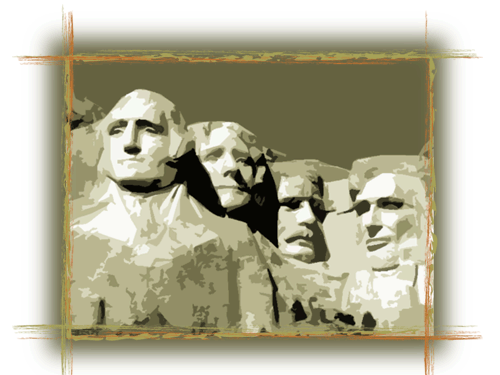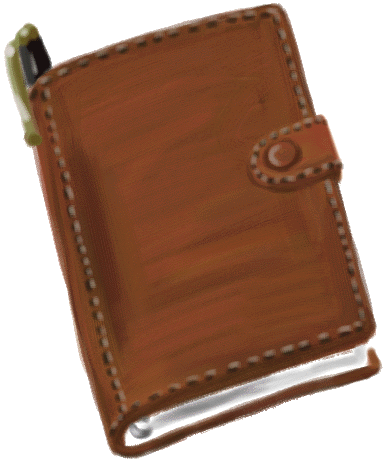政経資料:オバマ大統領真珠湾演説(英文と日本語)
【構成】
(1)英文全文(日経新聞より抜粋)
(2)日本語訳全文(NHK WEBより抜粋)
□
□
(1)オバマ大統領の真珠湾での演説全文(英語)
2016/12/28 12:08
□
Prime Minister Abe, on behalf of the American people, thank you for your gracious words. Thank you for your presence here today — an historic gesture that speaks to the power of reconciliation and the alliance between the American and Japanese peoples; a reminder that even the deepest wounds of war can give way to friendship and lasting peace.
□
Distinguished guests, members of our armed forces — and most of all, survivors of Pearl Harbor and their loved ones — aloha.
□
To Americans — especially to those of us who call Hawaii home — this harbor is a sacred place. As we lay a wreath or toss flowers into waters that still weep, we think of the more than 2,400 American patriots — fathers and husbands, wives and daughters — manning Heaven’srails for all eternity. We salute the defenders of Oahu who pull themselves a little straighter every December 7th, and we reflect on the heroism that shone here 75 years ago.
□
As dawn broke that December day, paradise never seemed so sweet. The water was warm and impossibly blue. Sailors ate in the mess hall, or readied themselves for church, dressed in crisp white shorts and t-shirts. In the harbor, ships at anchor floated in neat rows: the California, the Maryland and the Oklahoma, the Tennessee, the West Virginia and the Nevada. On the deck of the Arizona, the Navy band was tuning up.
□
That morning, the ranks on men’s shoulders defined them less than the courage in their hearts. Across the island, Americans defended themselves however they could — firing training shells, working old bolt-action rifles. An African-American mess steward, who would typically be confined to cleaning duties, carried his commander to safety, and then fired an anti-aircraft gun until he ran out of ammo.
□
We honor Americans like Jim Downing — a gunner’s mate first class on the West Virginia. Before he raced to the harbor, his new bride pressed into his hand a verse of Scripture: “The eternal God is thy refuge, and underneath are the everlasting arms.” As Jim fought to save his ship, he simultaneously gathered the names of the fallen so that he could give closure to their families. He said, “It was just something you do.”
□
We remember Americans like Harry Pang — a fireman from Honolulu who, in the face of withering fire, worked to douse burning planes until he gave his last full measure of devotion
— one of the only civilian firefighters ever to receive the Purple Heart.
□
We salute Americans like Chief Petty Officer John Finn, who manned a .50-caliber machine gun for more than two hours and was wounded more than 20 times, earning him our nation’s highest military decoration, the Medal of Honor.
□
And it is here that we reflect on how war tests our most enduring values — how, even as Japanese Americans were deprived of their own liberty during the war, one of the most decorated military units in the history of the United States was the 442nd Infantry Regiment and its 100th Infantry Battalion — the Japanese-American Nisei. In that 442nd served my friend and proud Hawaiian, Daniel Inouye — a man who was a senator from Hawaii for most of my life and with whom I would find myself proud to serve in the Senate chamber; a man who was not only a recipient of the Medal of Honor and the Presidential Medal of Freedom, but was one of the most distinguished statesmen of his generation as well.
□
Here at Pearl Harbor, America’s first battle of the Second World War roused a nation. Here, in so many ways, America came of age. A generation of Americans — including my grandparents — the Greatest Generation — they did not seek war, but they refused to shrink from it. And they all did their part on fronts and in factories. And while, 75 years later, the proud ranks of Pearl Harbor survivors have thinned with time, the bravery we recall here is forever etched in our national heart. I would ask all our Pearl Harbor and World War II veterans who are able to, to please stand or raise your hands — because a grateful nation thanks you.
□
The character of nations is tested in war, but it is defined in peace. After one of the most horrific chapters in human history — one that took not tens of thousands, but tens of millions of lives — with ferocious fighting across this ocean — the United States and Japan chose friendship and peace. Over the decades, our alliance has made both of our nations more successful. It has helped underwrite an international order that has prevented another World War and that has lifted more than a billion people out of extreme poverty. And today, the alliance between the United States and Japan — bound not only by shared interests, but also rooted in common values — stands as the cornerstone of peace and stability in the Asia Pacific and a force for progress around the globe. Our alliance has never been stronger.
□
In good times and in bad, we are there for each other. Recall five years ago, when a wall of water bore down on Japan and reactors in Fukushima melted, America’s men and women in uniform were there to help our Japanese friends. Across the globe, the United States and Japan work shoulder-to-shoulder to strengthen the security of the Asia Pacific and the world — turning back piracy, combating disease, slowing the spread of nuclear weapons, keeping the peace in war-torn lands.
□
Earlier this year, near Pearl Harbor, Japan joined with two dozen nations in the world’s largest maritime military exercise. That included our forces from U.S. Pacific Command, led by Admiral Harry Harris, the son of an American Naval officer and a Japanese mother. Harry was born in Yokosuka, but you wouldn’t know it from his Tennessee twang.
□
Thank you, Harry, for your outstanding leadership.
□
In this sense, our presence here today — the connections not just between our governments, but between our people, the presence of Prime Minister Abe here today — remind us of what is possible between nations and between peoples. Wars can end. The most bitter of adversaries can become the strongest of allies. The fruits of peace always outweigh the plunder of war. This is the enduring truth of this hallowed harbor.
□
It is here that we remember that even when hatred burns hottest, even when the tug of tribalism is at its most primal, we must resist the urge to turn inward. We must resist the urge to demonize those who are different. The sacrifice made here, the anguish of war, reminds us to seek the divine spark that is common to all humanity. It insists that we strive to be what our Japanese friends call otagai no tame ni — “with and for each other.”
□
That’s the lesson of Captain William Callaghan of the Missouri. Even after an attack on his ship, he ordered that the Japanese pilot be laid to rest with military honors, wrapped in a Japanese flag sewn by American sailors. It’s the lesson, in turn, of the Japanese pilot who, years later, returned to this harbor, befriended an old Marine bugler and asked him to play taps and lay two roses at this memorial every month — one for America’s fallen and one for Japan’s.
□
It’s a lesson our two peoples learn every day, in the most ordinary of ways — whether it’s Americans studying in Tokyo, young Japanese studying across America; scientists from our two nations together unraveling the mysteries of cancer, or combating climate change, exploring the stars. It’s a baseball player like Ichiro lighting up a stadium in Miami, buoyed by the shared pride of two peoples, both American and Japanese, united in peace and friendship.
□
As nations, and as people, we cannot choose the history that we inherit. But we can choose what lessons to draw from it, and use those lessons to chart our own futures.
□
Prime Minister Abe, I welcome you here in the spirit of friendship, as the people of Japan have always welcomed me. I hope that together, we send a message to the world that there is more to be won in peace than in war; that reconciliation carries more rewards than retribution.
□
Here in this quiet harbor, we honor those we lost, and we give thanks for all that our two nations have won — together, as friends.
□
May God hold the fallen in His everlasting arms. May He watch over our veterans and all who stand guard on our behalf. May God bless us all.
□
Thank you.
□
〔共同〕
http://www.nikkei.com/article/DGXLASGM28H37_Y6A221C1000001/
日経新聞
□
□
□
(2)オバマ大統領 所感全文(日本語訳)
NHK WEB
□
安倍総理、きょうの総理のご出席、そして心のこもった演説は、和解の力、そしてアメリカ国民と日本国民の同盟の強じんさを証明する歴史的なもので、アメリカ国民を代表して感謝申し上げます。
□
きょう、この日は、戦争による最も深い傷さえも、友情と平和の道につながるのだということを思い起こさせます。
ご列席の皆様、米軍関係者、そして、何より、真珠湾攻撃の生存者の方々、及びその大切なみなさまへ。アロハ!
□
アメリカ国民、特にハワイを故郷とする人たちにとって、この真珠湾は神聖な場所です。
未だ嘆き悲しむこの湾に献花するとき、私たちは、永遠の天国へと向かった2400人を超えるアメリカの愛国者たち、父や夫、妻や娘のことを思います。
毎年12月7日になると、いつもより少しだけ姿勢を正すオアフの守護者たちに、私たちは敬礼をし、ここで75年前に示された勇姿に思いをはせるのです。
□
12月のその日、夜が明けると、楽園はこれまでにないほど魅力的でした。
真珠湾の水は温かく、現実と思えないほど青く澄み切っていました。
水兵たちは食堂で食事をしたり、教会に行く準備をしたり、こぎれいな白いズボンとTシャツで身支度をしたりしていました。
□
湾には、艦船が整然と停泊していました。カリフォルニア号、メリーランド号、オクラホマ号、テネシー号、ウエストバージニア号、ネバダ号。そして、アリゾナ号の甲板では、海軍の音楽隊が演奏の準備をしていました。
□
その朝、兵士たちは、肩に記された階級を超えて、それぞれの胸に宿る勇気を示しました。彼らはこの島のあらゆる場所で、訓練弾や古いライフル銃までをも使って、あらゆる手を尽くして防衛に当たりました。
あるアフリカ系アメリカ人の食堂の給仕係は、ふだんであれば清掃の役割しか与えられていませんでした。しかし、この日、司令官を安全な場所に連れて行き、そして弾薬がなくなるまで対空砲を撃ち続けたのです。
□
私たちは、ウエストバージニア号の1級砲撃手であったジム・ダウニングのようなアメリカ人を誇りに思います。真珠湾に駆けつける前、彼の新妻は彼の手に聖書の言葉の一節を握らせました。「永遠なる神はなんじの拠り所、その永遠なる胸に抱かれて」というものです。
□
ジムは戦艦を守るために戦い、同時に、倒れた人たちの名前を記録しました。
家族にその事実を伝えることができるようにするためです。彼は、「人がする当然のことだ」と言いました。
□
私たちはハリー・パンのようなアメリカ人を記憶しています。彼はホノルル出身の消防士で、荒れ狂う火を前に、最後まで献身的に、燃える戦闘機の消火に取り組みました。彼は戦傷したアメリカの軍人に授与される「パープルハート」勲章を、民間人の消防士として受賞しました。
□
私たちは、2時間以上にわたって、50口径のマシンガンを撃ち続け、20回以上も負傷し、最高位の軍人の勲章、名誉勲章を受章したジョン・フリン上等兵曹のようなアメリカ人に敬意を表します。
□
私たちは、戦争がいかに私たちの恒久的な価値観を試すのかということをじっくり考えなければなりません。日系アメリカ人でさえ、戦争中、自由を奪われたのかということを。
アメリカ史上、最も勲章を受けた部隊は、日系アメリカ人2世による部隊、442連隊と第100歩兵大隊だったことを。
□
442連隊には、私の友人であり、ハワイ人としての誇りをもつ、ダニエル・イノウエさんがいました。私が生まれてからのほとんどの間、ハワイ選出の上院議員を務め、ともに上院議員を務めたことを誇らしく思います 。
彼は、名誉勲章や一般市民としては最高位となる「自由勲章」の受章者というだけでなく、その時代の最もすぐれた政治家でもありました。
□
ここ真珠湾での、第2次世界大戦のアメリカの最初の戦いが、国民を目覚めさせました。ここで、多くの点で、アメリカは成熟しました。私の祖父母を含む多くの世代のアメリカ人は、戦争を求めませんでした。しかし、戦争に背を向けることをせず、それぞれの持ち場で役割を果たしました。
□
そして75年後、真珠湾攻撃の生存者は、時間の経過とともに少なくなっています。この場で私たちが思い出す勇者は、私たち国民の心に永遠に刻まれています。
□
真珠湾と第2次世界大戦の退役軍人のみなさん、可能な方は、立ち上がるか、手を上げてください。みなさんの功績に感謝しています。
□
国の本質は、戦争において試されますが、平時において定義されます。
先の大戦は、数万ではなく、数千万の命が失われた人類史上、最も恐ろしい出来事の1つです。大平洋で展開された悲惨な戦闘が終わり、アメリカと日本は友情と平和を選びました。過去、数十年にわたり、私たちの同盟は、両国をより繁栄させました。
□
同盟は、国際秩序を構築し、それによって新たな世界大戦を防ぎ、多くの人々を極度の貧困から救うことができました。
□
今日、アメリカと日本の同盟は、共通の国益のみならず、共通の価値に基づいて結ばれ、アジア太平洋の平和と安定の礎となっており、世界が前進していく力となっています。
□
私たちの同盟は、いまだかつてないほど強固なものになりました。よい時も悪い時も、私たちはお互いを支え合ってきました。5年前を思い出してください。津波が日本を襲い、東京電力福島第一原子力発電所が「炉心溶融」、いわゆるメルトダウンとなったとき、アメリカ軍は、われわれの日本の友人を助けました。
そして、アメリカと日本は、アジア太平洋地域と世界における安全保障を強化するために協力しています。海賊を後退させ、疾病と戦い、核兵器の拡散を遅らせ、戦争で荒廃した土地での平和を維持しています。
□
ことし、真珠湾の近くでは、世界最大の海上軍事演習が行われ、日本の自衛隊は世界の20余りの国とともに参加しました。この演習には、アメリカ海軍の軍人を父に、日本人を母に持つハリー・ハリス司令官が率いるアメリカ大平洋艦隊も参加しました。ハリー司令官は横須賀で生まれましたが、彼のテネシーなまりから、それはわからないでしょう。ハリー司令官、あなたの卓越したリーダーシップに感謝します。
□
そのような意味で、私たちがここにいるのは、それは政府と政府の関係からだけでなく、両国の国民による絆があるからです。安倍総理がここにいることは、国と国、そして人と人との間に何が可能であるかということを気づかせてくれます。戦争は終わらせることができます。最も激しく対立した敵どうしは、最も強い同盟関係を築くこともできます。平和という果実は、戦争による略奪をはるかに上回るものです。これが神聖な真珠湾のゆるぎない真実です。
□
憎しみの炎が最も強く燃えさかる時も、部族間の争いがあるときも、私たちは内向きになってはいけないということを、この場所は思い起こさせます。自分たちとは異なる人々を、悪者扱いする衝動に抗わなければならなりません。ここでの犠牲や戦争に対する怒りは、われわれの中にある、神聖な輝きを探すことを思い出させてくれます。
□
これは、日本の友人の言葉を借りれば「オタガイノタメニ」、つまり「相手とともにあって、相手のために尽くす」よう努力することを求めています。これは、ミズーリ号のウィリアム・キャラハン船長による教訓です。彼は、彼の船が攻撃を受けた後も、日本人パイロットの遺体を、アメリカ人の水兵が縫製した日本の国旗で覆い、軍葬儀の礼を行うよう指示しました。
そして今度は、何年もあと、真珠湾を再訪した日本人パイロットによる教訓です。彼は、アメリカ海軍のラッパ手と友人となり、軍葬の際に流される曲を演奏してもらうように依頼し、毎月、記念館に、アメリカの犠牲者と日本の犠牲者にそれぞれ1本ずつのバラの花を飾ることになりました。
□
この教訓は、東京で勉強しているアメリカ人であろうと、全米で勉強している日本の若者であろうと、がんの解明に取り組んだり気候変動と闘ったり、星を探査したりしている日米の科学者であろうと、日々の生活の中で、最も平凡な方法で学ぶことができることを示しています。また、野球のイチロー選手のように、マイアミのスタジアムを明るくし、アメリカ人と日本人が共有する誇りによって元気づけられいます。アメリカ人と日本人は平和と友情で結ばれています。
□
国として、そして人として、われわれは、私たちが引き継ぐ歴史を選ぶことはできません。しかし、そこからどのような教訓を学び、どのように私たちの未来を描くかということは選ぶことができます。
□
安倍総理、私は友情の精神に基づき、日本人の人々がいつも私を歓迎してくれたのと同様に、あなたをここに歓迎します。私たちはともに、戦争よりも平和によって多くのことを勝ち得ることができ、報復よりも和解がより多くの報償をもたらすというメッセージを、世界に対して送ることができることを期待します。
この静かな港で、私たちは亡くなられた方々に対して敬意を表し投稿、日米両国が友人として勝ち得たすべてことに対して感謝します。
□
神が戦没者をとこしえの胸に抱え、退役軍人を見守り、皆が私たちのために番をしてくださいますように。私たちに神の御恵みを。ありがとうございます。
□
□
NHK NEWS WEB12月28日 13時17分
http://www3.nhk.or.jp/news/html/20161228/k10010822691000.html








